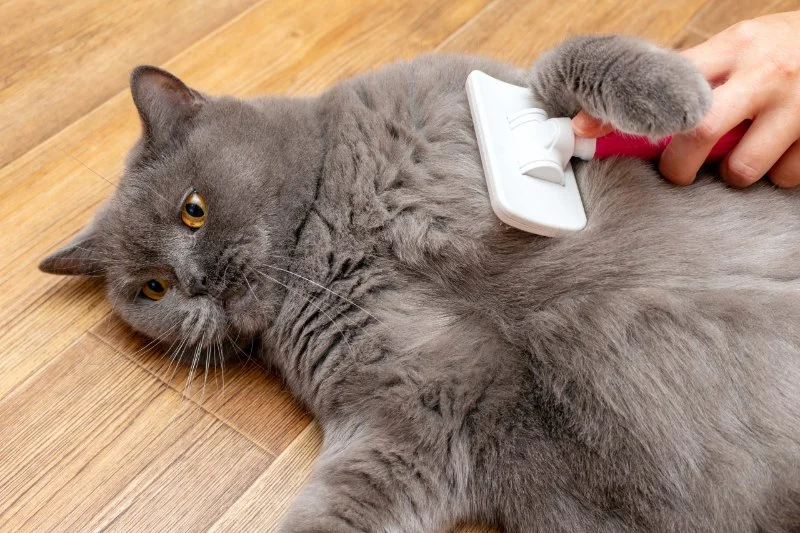
1. The Importance of a Shiny and Healthy Coat for Your Cat
Your cat's coat is not just for looks—it plays an essential role in keeping them healthy. A shiny and healthy coat can indicate good overall health and well-being. On the other hand, dull, dry, or matted fur may be a sign of poor nutrition, lack of grooming, or even an underlying health issue. Understanding how to maintain a shiny and healthy coat for your cat is crucial for their comfort and vitality.

Brooklyn Farm & Pets & Hardware LLC
BrooklynNortheastern Connecticut Planning RegionConnecticut
245 Providence Rd, Brooklyn, CT 06234, USA
1.1 Regular Grooming for Cat Coat Care
One of the best ways to maintain your cat's coat is through regular grooming. Brushing your cat not only helps prevent tangles and mats but also stimulates natural oil production, which keeps their fur shiny and smooth. Depending on the breed, you may need to brush your cat daily or just a few times a week. Long-haired cats, such as Persians or Maine Coons, require more frequent grooming to prevent matting, while short-haired cats benefit from weekly brushing sessions.
1.2 Proper Shampooing and Bathing
Although cats are generally self-cleaning, occasional baths can help keep their coats in top condition. When giving your cat a bath, use a cat-friendly shampoo designed specifically for their skin and coat type. Bathing too often can strip away natural oils, so it’s essential to avoid overdoing it. A good rule of thumb is to bathe your cat once every few months, or as recommended by your veterinarian, to maintain a healthy and shiny coat.
2. Diet and Nutrition for a Healthy Coat
A balanced diet is key to ensuring your cat's coat remains shiny and healthy. Just like humans, cats' skin and fur health are directly impacted by the nutrients they consume. Providing your cat with the right foods can help improve the quality of their coat.
2.1 High-Quality Protein in Your Cat's Diet
Protein is essential for maintaining healthy skin and fur. High-quality animal proteins, such as chicken, turkey, or fish, should be the primary ingredient in your cat’s diet. Protein helps repair damaged fur and supports healthy hair growth. Look for cat food with named animal proteins as the first ingredients, and avoid fillers like corn or soy.
2.2 Omega-3 and Omega-6 Fatty Acids
Omega-3 and omega-6 fatty acids are crucial for a healthy, shiny coat. These healthy fats help reduce inflammation, prevent dry skin, and keep your cat’s fur soft and glossy. You can find these nutrients in fish oils and flaxseeds, so choosing a high-quality cat food that includes these ingredients is a great way to support your cat's coat health. Alternatively, you can supplement their diet with fish oil supplements, but consult your veterinarian for the right dosage.
2.3 Hydration is Key to a Shiny Coat
Hydration is vital for maintaining a shiny, healthy coat. Dehydration can lead to dry, flaky skin and dull fur. Ensure that your cat always has access to fresh, clean water. Wet cat food can also help increase their water intake, especially if your cat is not drinking enough water from a bowl. This additional moisture can help promote a glossy coat and overall skin health.
3. Common Health Issues Affecting Cat Coats
Sometimes, a dull or unhealthy coat can be a sign of underlying health issues. If your cat's coat suddenly loses its shine, becomes matted, or starts shedding excessively, it’s important to monitor for any additional symptoms that could indicate a health problem.
3.1 Parasites Affecting Your Cat's Coat
Fleas, ticks, and mites can lead to skin irritation and hair loss. If your cat is scratching or biting excessively, this could be a sign of a parasite infestation. Regular flea treatments and grooming can help prevent these pests and keep your cat's coat in top condition.
3.2 Allergies and Skin Conditions
Just like humans, cats can suffer from allergies, and these can affect their skin and coat. Allergic reactions to food, pollen, dust, or even certain shampoos can cause itching, inflammation, and hair loss. If you notice any changes in your cat’s coat or skin, consult your veterinarian for proper diagnosis and treatment options.
3.3 Hormonal Imbalance and Coat Health
Hormonal imbalances, such as those caused by thyroid problems, can also impact the quality of your cat’s coat. If your cat’s fur appears excessively dry, thin, or patchy, it could be a sign of an underlying medical issue that requires veterinary attention.
4. Why Choose Omnia Pet for Your Cat's Care
For the best products to help keep your cat’s coat shiny and healthy, visit Omnia Pet. We offer high-quality grooming tools, supplements, and cat food that are designed to promote healthy skin and fur. From brushes to premium cat food, we have everything you need to keep your cat looking and feeling their best. Visit us today to find the best products for your cat's coat care!



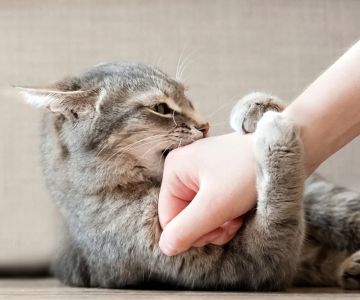

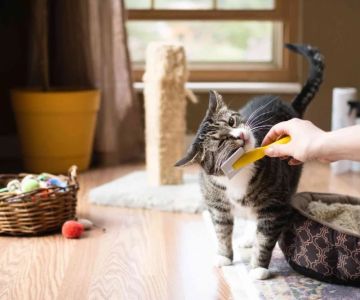

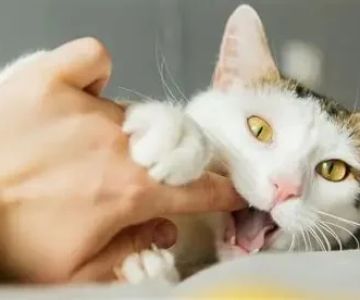
 Hollywood Feed4.0 (184 reviews)
Hollywood Feed4.0 (184 reviews) Brew Biscuits5.0 (2 reviews)
Brew Biscuits5.0 (2 reviews) All Friends Animal Hospital4.0 (446 reviews)
All Friends Animal Hospital4.0 (446 reviews) Kittylandkittens LLC0.0 (0 reviews)
Kittylandkittens LLC0.0 (0 reviews) Village Animal Clinic4.0 (212 reviews)
Village Animal Clinic4.0 (212 reviews) Rift Lake Aquatics4.0 (165 reviews)
Rift Lake Aquatics4.0 (165 reviews) Understanding Pet Insurance: What Does It Actually Cover?
Understanding Pet Insurance: What Does It Actually Cover?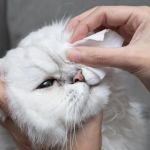 How to Keep Your Kitten's Eyes Clean and Free of Discharge
How to Keep Your Kitten's Eyes Clean and Free of Discharge The Truth About Heartworm Disease: Prevention is Cheaper Than Cure
The Truth About Heartworm Disease: Prevention is Cheaper Than Cure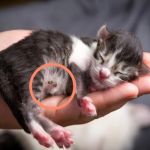 Why Is My Kitten's Belly Button Showing? | Omnia Pet
Why Is My Kitten's Belly Button Showing? | Omnia Pet Why Does My Cat Bite Me Gently? Love Bites Explained
Why Does My Cat Bite Me Gently? Love Bites Explained How to Stop Your Kitten from Getting into Cabinets
How to Stop Your Kitten from Getting into Cabinets